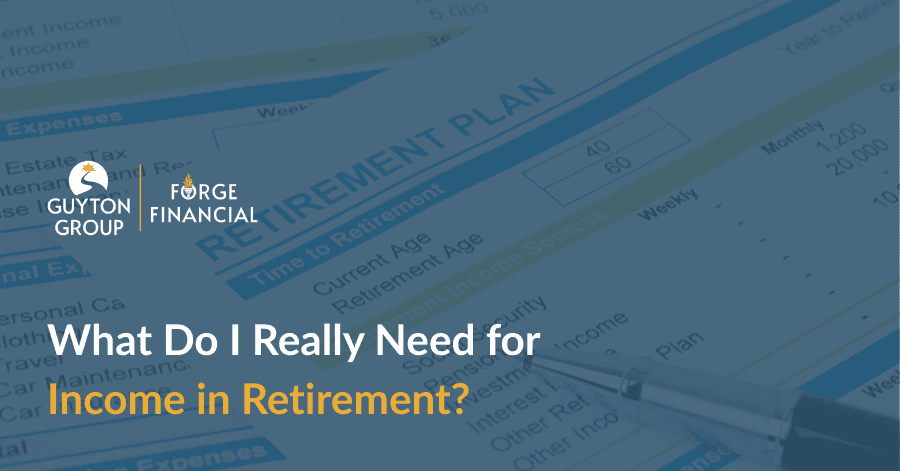During market downturns, financial pundits can often make you feel like the world is ending. The common refrain is that things may never improve, and it’s better to cut your losses and get out of the stock market now before things get worse.
Don’t buy into the panic. A huge mistake can be to sell out of the stock market and simply sit in cash.
The problem with this approach is that it is practically impossible to time the market. For this to work, you have to time the market correctly not only once but twice!
Most investors end up selling as the market declines and then wait to buy in again once the market has already recovered – essentially the opposite of the buy low and sell high philosophy.
I tell my clients that timing the market requires more luck than skill. When it comes to retirement planning, I prefer to rely on math, science, data, and a well-thought-out strategy that accounts for market volatility. Not luck. Stopping contributions to a retirement account when the market is down is typically the wrong move. When the market is down, it can be one of the best times to invest.
An analysis of market performance over decades clearly shows equities have outperformed bonds over the long term. While the market fluctuates in the short term, it generally rises over time. We can look back historically and view the times when it appeared the “world was ending” economically, and we see now that the market always recovered.
Typically, the best “gains” in the market have followed the “bad times.”
We need to view this data and realize that optimism should be viewed as the only realism. For most individuals, selling and moving money into cash when the market is down is one of the worst investment decisions an individual can make.
Here are some tips to avoid making costly mistakes with your retirement account when markets are turbulent:
• Understand your risk tolerance: I often tell my clients to replace the word risk with volatility when it comes to their retirement accounts. Assuming you are already diversified properly for your unique situation, then the more volatility you can handle, the more gains you may reap over time.
• Act logically: Take emotions out of the equation. Use math, science, and data to make logical decisions. Panic selling when the market is declining is rarely a wise move.
• Look back at history: If you moved your money out of the stock market in 2008-2009 when the market dropped significantly and subsequently sat on the sidelines, then you would have missed out on huge market rebounds over the next decade. Even missing just one year of the rebound would have resulted in a loss of significant gains.
• Know when to call in professionals: If you are feeling worried, call your financial advisor and have a conversation. If you do not have an advisor, then ask friends and family for recommendations and check their record to ensure they are a good fit for your situation.
• Prepare and plan: While every investor’s situation is unique, there are strategies you can utilize to handle market volatility in retirement. The key is to be positioned so that you do not need to withdraw money when the market is significantly down. Sequence of returns risk shows that withdrawing money from an equity portfolio during a market decline is like drinking from a water bottle with a hole — it can deplete everything rapidly.
One way to prevent sequence of returns risk is to have a portion of your portfolio allocated so that it is uncorrelated to market volatility. Savings accounts, properly structured cash value life insurance, and certain types of annuities can work well to protect against sequence of returns risk.
Not only does this add a tremendous amount of protection against selling when the market is down, but it can also generate confidence to invest more intelligently. While the primary purpose of life insurance is the death benefit protection, it is important to understand the advantages that cash value accumulation can provide, including supplemental income during retirement.
In retirement, we need our money to work against many wealth-eroding factors such as taxes, inflation, market volatility, and potential health care costs. Your portfolio needs to grow to counteract these factors, so you do not outlive your money. The stock market can be an incredible place for growth in a retirement portfolio, but to reap the rewards of long-term growth, you need to be prepared for volatility. Stocks will fluctuate.
Relying on data to make your investment decisions rather than emotion will help you avoid panic selling and put you on the path to financial clarity and confidence.
This message contains information, intended only for the person named above. Any use, distribution, copying or disclosure by another person is strictly prohibited. If you have received this message in error, please notify me immediately by telephone, and delete the original message without making a copy. My telephone number and address are indicated above. The Guyton Group offers fee-based planning, wealth advisory services, and securities through Park Avenue Securities LLC (PAS) and insurance through The Bulfinch Group Insurance Agency, LLC. Fee-based plans may include tax and wealth planning suggestions, but we do not give tax or legal advice. You should consult your tax or legal advisor regarding your individual situation. Joseph H. Guyton and Andrew Guyton are Investment Advisory and Registered Representatives of PAS and Financial Representatives of The Guardian Life Insurance Company of America (Guardian), supervised from: 160 Gould Street, Suite 310, Needham, MA 02494, 781-449-4402. PAS is a member of FINRA & SIPC and a wholly-owned subsidiary of Guardian. The Guyton Group and The Bulfinch Group are affiliated, but neither firm is an affiliate or subsidiary of PAS or Guardian. The Guyton Group and The Bulfinch Group are not registered in any state or with the U.S. Securities and Exchange Commission as a Registered Investment Advisor. Financial Balance® is a service mark of The Guardian Life Insurance Company of America® (Guardian), New York, NY 10004, © 2020 Guardian. Andrew Guyton, CA Insurance License #0I61971; FL Insurance License #W252632. 8466902.1 Exp 10/27






